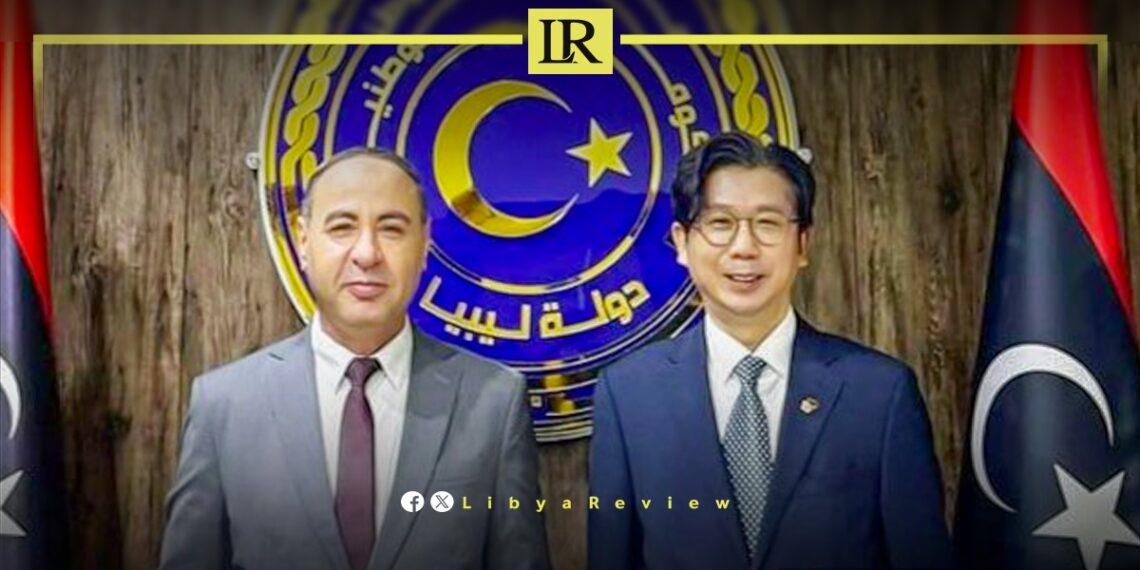The acting Foreign Minister in the Government of National Unity (GNU), Tahir Al-Baour, met with the South Korean Ambassador to Libya, Jang Je-hak, to discuss the Embassy’s return to work in Tripoli.
Describing the meeting as “fruitful,” the Ministry stated on Sunday that discussions focused on enhancing cooperation in various fields, including the embassy’s return, and supporting Korean companies in development and commercial projects in the country.
South Korea stood by Libya during the devastating storm Daniel that hit the country last September, announcing the provision of two million dollars in humanitarian aid.
In early March, the South Korean International Development Agency expressed readiness to return to Libya and work with technical sectors, organizing specialised training courses.
In November, the Egyptian Ministry of Transportation announced the signing of an Egyptian-Korean agreement for the export of Libyan oil to Europe, through the Jarjoub seaport.
Egypt and the South Korean company, STX signed a Memorandum of Understanding (MoU) regarding development activities and strategic partnership in the economic zone of Jarjoub, located in the Egyptian governorate of Matrouh.
The agreement includes the establishment of an industrial logistics zone, and the Jarjoub seaport. This is part of the strategic plan for the development of the Matrouh region.
This involves the development of the Jarjoub port and its industrial logistics zone, the construction of silos for grains to meet the demands of Egypt, as well as re-exportation.
The agreement encompasses the creation of an oil pipeline from Libya for re-exportation to Europe.
Additionally, a factory will be established for the reassembly of used cars imported from Korea and Japan, which will be re-exported to African countries.
Furthermore, a container station will be established at the port to serve goods coming from East Asia, and heading to North and South America.
Finally, a logistics base will be created to provide shipping lines for Egypt.
The Egyptian Minister of Transportation, Kamel Al-Wazi, emphasised that this agreement “aligns with President Abdel-Fattah El-Sisi’s directives to make Egypt a global center for trade and logistics. The agreement is also part of the strategic plan of the state and the development of the Matrouh region.”
He highlighted that establishing the economic zone in Jarjoub, “serves as a model for creating a comprehensive economic, trade, and logistics center, contributing to supporting the Egyptian economy and facilitating trade between Egypt, Europe, Mediterranean Basin countries, and African nations.”
Meanwhile, Libyan Oil and Gas Minister, Mohamed Aoun, denied any agreement signed by the Ministry with the South Korean company STX for establishing an oil pipeline through the Egyptian port of Gargoub. He mentioned that the Egyptian Ministry of Petroleum was not aware of this agreement, indicating it was a unilateral decision by the Ministry of Transport without consulting the Petroleum Ministry.
Additionally, the Libyan Minister disclosed objections from the Egyptian Petroleum Minister regarding this procedure. Such agreements are supposed to be signed after discussions with Libyan oil institutions. However, he noted that some Egyptian companies, including Petrojet, continue their operations in Libya.


